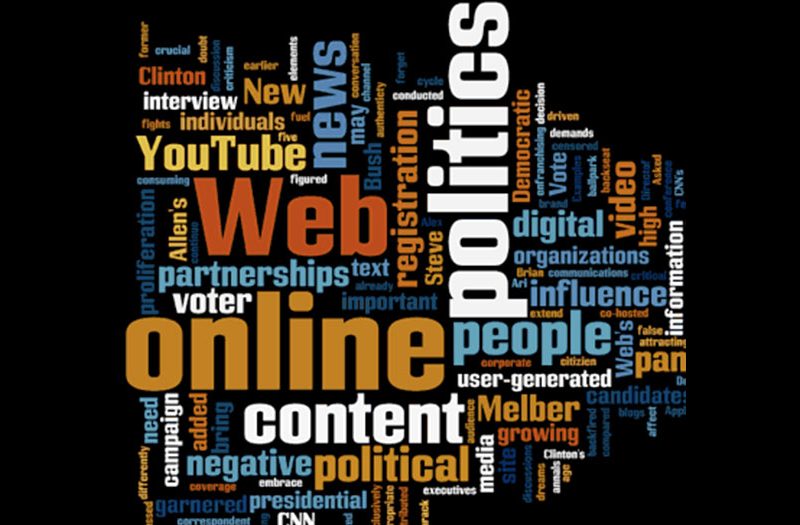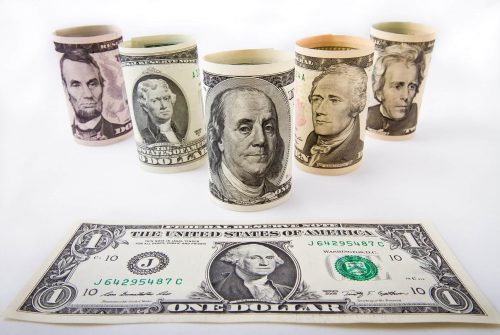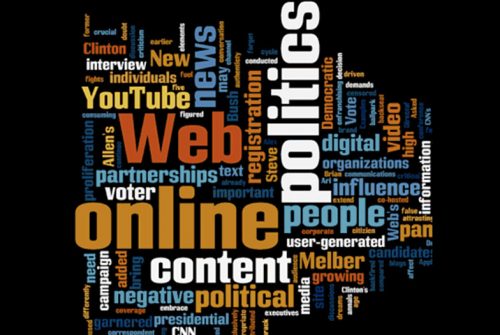Politics must be disrupted
8 February 2018 | Written by Andrea Zorzetto

I should be used to it, but whenever I go to the airport I’m still surprised by the huge amount of people travelling every day, every hour, even every minute. I’m amazed to see that, wherever I am, everyone is lost on smartphones and laptops, and that airports seem always more similar to each other. We often talk about exponential technologies, or the exponential growth of countries like China, but these aspects are simple consequences of a single trend: we have transformed the whole world into an exponential machine.
A machine that gets bigger and bigger, at an incredible speed. Think about it: an American adult consumes an average of 11,000 watts of energy a day, more than a blue whale, the largest animal on the planet. But, in the world, there are just a few thousand whales, instead we are more than 7 billion and, probably, we’ll became 10 billion by 2050. Megalopolis like Tokyo, with over twenty million inhabitants, were an exception in the last century, but today they are becoming very common in many developing countries. For example, the Pearl River Delta Metropolitan region, in southern China, is turning into a mega-city of one hundred million inhabitants. Today Facebook is the largest community in the history of humanity: it has two billion users, even more than the Christian religion.
But where are we going with this machine? And more important: who is driving it? If I asked one of my grandparents or Ian Bremmer, one of the greatest geopolitical expert in the world, the answer would be the same: it’s not clear what the destination is, and nobody is driving. The machine is driverless, and is incapable of solving many of the problems related to the arrival of new technologies, in particular the increase of inequalities and the polarization of the job’s market. It is not the first time that this happens. The beginning of nineteenth century in England, a period that now we consider the most incredible for the humanity’s progress, was a nightmare for milion of people. Especially for that part of the population that had to adapt to the alienating and slaughtering work in the new factories. The steam engine, first, and then the railways, led to the birth of modernity, but that involved also huge exploitation, child labor and, in some cases, a reduction in the standard of living. The governments adapted very slowly, but when they succeeded in understanding and regulating the impact of technologies (the recognition of workers’ rights and compulsory education for everyone are just some examples) a period of huge prosperity began. As explained by Venezuelan researcher Carlota Perez, expert in technologies and socio-economic development, in the last two centuries the same historical routine repeated over and over. It all starts with a sort of big bang: a new high-potential technology that, at the beginning, captures the interest of a few. This technology brings a lot of advantages for those who adopt it and, over time, starts to spread, attracts new capital, create a system of spin-off technologies and even changes the way people do business and interact with others. These new technological, economic and social models, however, collide with previous institutions, and that leads to strong tensions and imbalances. If, however, politics could adapt itself to this new world and shape it, there is the possibility of giving life to a new golden age, where the wealth created by the new technological system can benefits everyone.
Today we are in one of the last phases of this cycle, the one with a huge offset between the new world and the old politics. The Internet and the Artificial Intelligence establish themselves in niche industries over the past decade, but now they are the main reason of the growth of almost every industry. Google works on autonomous cars, Amazon wants to start selling medicines, Netflix is overtaking TV, Alibaba replaces banks as a financial transaction service, Facebook changes the results of the elections. However, governments don’t know how to act. Antitrust and tax authorities are powerless over digital industries that have the monopoly and don’t pay taxes. There is no institution that protect us from selling our online privacy online every day. Uber drivers and other workers in the Gig Economy have no rights or social security. How to solve these problems? How can we avoid that these situations bring harassment and inequalities? The sector that must be disrupted, nowadays, is politics. Because politics have to run the world. Entrepreneurs, coders, scientists and investors have to push the frontier of innovation, but it’s up to the society to choose how to use these technologies, how to distribute the benefits and which are the limits. And this choice, in my opinion, must be done through politics, starting from three key guidelines.
- The goal of politics must be the growth of a huge and prosperous middle class. The growth of GDP is not enough, neither employment creation, nor something intangible as happiness. First of all, politics must ensure that freedom and opportunities are available to the majority of the population.
- Politics must get used to change more quickly, but also has the task to make the system slow down when speed becomes unsustainable. The world is always faster and the governments have to learn to adapt themselves, but society and people need time to change. The machine needs brakes as well as a guide.
- Finally, politics must be global. The world was connected even before the digital revolution, but compared to the previous technologies and situations the difference with the historical period in which we are living is huge. The main problems are now global, and even Washington, Beijing and Brussels are forced to cooperate to solve them.
Translating these three principles in practice is not easy at all. But what is certain is that reforms that can improve only a part of this situation, one step at a time (as Obamacare in the USA or the Jobs Act in Italy), cannot lead to the real solution. What Peter Thiel called zero to one, it’s what we need now in politics: a substantial change that leads to the creation of a new institutional system, suitable and adaptable to the digital world.




